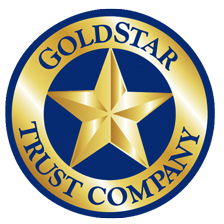Unrelated Business Income Tax (UBIT)
.
Unrelated Business Income Tax
Unrelated Business Income Tax (UBIT) applies to ordinary income received by an IRA if the IRA generates gross income of $1,000 or more during the tax year. IRC Section 511. “UBIT tax is due from an ordinary income producing business when such business is a flow through company not paying corporate tax.” The Self Directed IRA Handbook – Mat Sorensen.
The advantages of a self-directed IRA are well known. They allow your investments to grow tax deferred in a Traditional IRA or tax free with a Roth IRA. Interest that is generated from your investment, dividends from equities, or gains on the sale in real estate are all deferred until the IRA owner withdraws the funds from the IRA or are tax free in the Roth IRA. These are considered “investment income.”
There are instances, however, that may trigger a taxable event which is known as Unrelated Business Income Tax or UBIT. There are three common events that may trigger UBIT.
Example 1: The IRA buys LLC ownership in a business that provides good or services (e.g. restaurant, tech company, business selling services or goods). UBIT may apply if the LLC is structured as a pass-thru entity for taxes that that does not pay corporate taxes.
Example 2: The IRA invests in real estate investment assets that do not result in investment income. An example would be a real estate development or buying and selling a large number of short-term real estate “flips”. This will cause the assets to be considered as inventory vs. investment assets and may result in taxable income.
Example 3: When an IRA buys real estate with a non-recourse loan. A non-recourse loan can be obtained when the IRA owner does not have sufficient IRA funds to make a real estate purchase. For instance, John Doe wants to purchase a property for $100,000. However, he only has $40,000 available in IRA funds to make the purchase. John can obtain a non-recourse loan to cover the remaining $60,000 balance. The property is now 60% leveraged. Because the debt portion is not retirement plan money, the IRS requires tax to be paid on that percentage of the income. In the instance above, if $10,000 is generated from rental income, then $6,000 would be considered unrelated debt financed income (UDFI) which will cause UBIT to be due. The IRS provides an automatic $1000 deduction for UBIT, therefore $5000 of UBIT would be due. The remaining $4000 in rental income represents the IRA’s percent of funds coming from retirement plan money and is not subject to UBIT tax.
How do I obtain a non-recourse loan?
Not all banks offer non-recourse loans. We have listed a few banks below that do offer non-recourse loans, however you are free to research other lenders:
** North American Savings Bank – 866-735-6272
** First Western Savings Bank – 800-908-8845
What is a non-recourse loan
The loan can be used to provide non retirement funds to purchase real estate. The main feature of a non-recourse loan is the collateral securing the loan is the property and the sole source of repayment. The lender cannot hold the borrower personally liable in the event of a default or pursue legal action against the borrower. The IRA owner does not personally guarantee the loan. The sole recourse in the event of default must be satisfied by the property held in the IRA. GoldStar must sign the documents on behalf of the IRA. The proper titling should be GoldStar Trust Company FBO: Client Name IRA.
What is Unrelated debt financed income (UDFI)?
UDFI applies to the gains received by an IRA that are attributable to debt (IRC Section 514). When a non-recourse loan is obtained and used in connection with an IRA purchase, it may subject the IRA to unrelated debt financed income tax. This tax must be paid by the IRA and is determined by the largest amount of debt carried by the plan for the previous 12 months. The IRA, not you personally, is responsible for paying any UBIT tax liability. Goldstar does not offer any tax advice and recommends that you consult with your tax professional.
How does an IRA owner pay UBIT?
If UBIT I or UDFI tax is due, the IRA owner is required to file a 990T tax return. The tax due should be paid from the IRA, not paid personally from the IRA owner. The IRA owner must obtain a separate EIN to file the 990T. As the calculation process can be complicated, it is important that you consult with a tax professional to determine UBIT liability related to your self-directed IRA. Goldstar does not offer any tax advice and recommends that you consult with your tax professional.
GoldStar Trust Company does not give investment advice nor are we affiliated with any investment sponsor or retirement plan sponsor. We do not give tax or legal advice nor benefit financially from investment choices.

